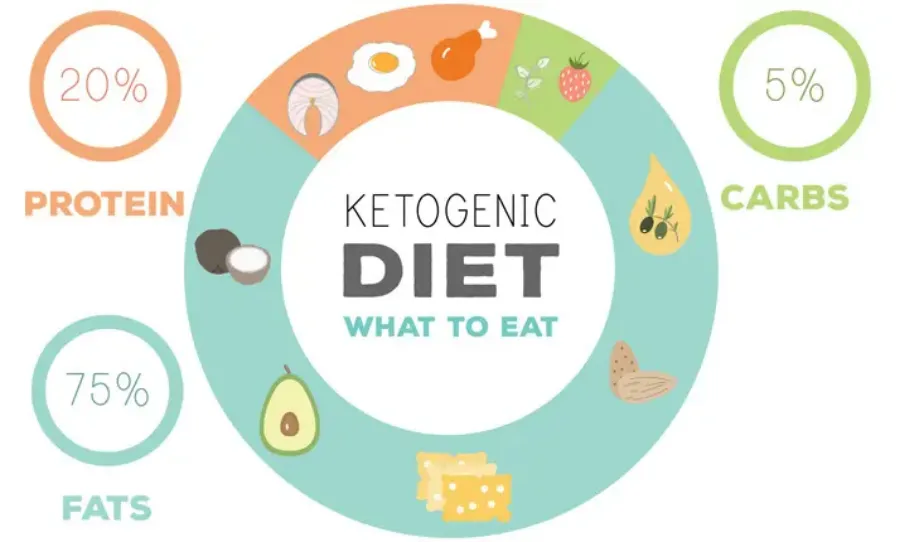The 2025 Keto Mice Update
Katrina Borthwick - 29th September 2025
Some recent research has pointed to some potential health impacts for those on the keto diet long-term. I wrote about the keto diet in the newsletter in May 2023, so I was interested to see this update as we are sorely lacking long term data on the impacts of this diet on healthy people. Although the diet has been used since the 1920s as an intervention for some specific health conditions such as epilepsy, I am more interested in whether it is an unnecessary risk for those who do not have a specific medical condition.
This new research was performed on mice, not humans. The advantage of this is that they were able to observe the impacts of the keto diet over the long-term. Which for mice was about 8 months, but this would be years in human time. We haven’t yet been able to observe humans on the keto diet for decades in the numbers we would like, and certainly not under the scientific conditions and controls that would make the conclusions clear from a scientific standpoint.

Keto Refresher
The keto (or ketogenic) diet is a very low carbohydrate diet (less than 50g/day) that is high in fat and with moderate protein. The bulk of calories come from fat. It induces ‘ketosis’, where the liver breaks down fat into ketones to use as fuel. It was first used medically in 1924 for epilepsy; these days it’s also used for type 2 diabetes, weight loss, neurological disorders (Parkinson’s, Alzheimer’s), PCOS, brain injury, acne, and some cancers. In recent years the keto diet has been adopted much more widely for weight loss. That weight loss is likely due to reduced appetite (satiety hormones/proteins), not through direct “fat burning” by ketones.
At the time I wrote my last article there was already some research around the risks of such a diet. Both very low (<40%) and very high (>70%) carb intake levels were linked to higher mortality, with animal-based fats/proteins worse than plant-based ones. There was also the risk of nutrient deficiencies, a risk that higher fat intake may increase oxidative stress and inflammation amplifying aging, insulin resistance raising risk of metabolic syndrome and cardiovascular disease, and possible loss of bone density.

A major pitfall is that such a strict diet is really hard to follow. The research was showing that after stopping keto there was rebound weight gain and metabolic difficulties. There wasn’t enough research on the ‘post keto’ outcomes to determine if long term gains were made. There definitely can be benefits to the keto diet (weight loss, blood sugar control, neurological conditions), but its long-term safety is poorly understood.
The reality is that extreme diets can stress the body, so the risks may outweigh benefits if there is no strong medical reason for being on it. The weight loss effect may also simply be due to appetite suppression, something which could potentially be achieved in safer ways.
New research
In the latest research published in ‘Science Advances’ on 19 September, researchers used mice to assess the effects of a long-term keto diet on the storage and breakdown of fats (lipid metabolism), liver function and blood sugar stability (glucose homeostasis). ‘Long-term’ for mice meant feeding them the diet for around 8 months, which is equivalent to years in human time.
They found elevated lipid levels in the blood (a sign of cardiovascular risk), indicating the diet may cause fatty plaques to form in arteries over time. They also found ‘fatty liver’ markers for impaired liver function, particularly in male mice - suggesting that the diet was stressing the liver, which has a central role in carbohydrate, fat (lipid), and protein metabolism. Add to this, the mice developed glucose intolerance, meaning their bodies couldn’t get rid of glucose, and insulin production was less responsive. This indicates a dysfunction in the release of insulin from the pancreas to regulate blood sugar levels.
These all sound a bit horrid, but they did also note that mice who were taken off the keto diet had an improvement in their glucose intolerance. So perhaps the metabolic impairments are not permanent. It may also mean that taking breaks in the diet may mitigate some of the risks, but again this has not been tested in humans.
The researchers’ overall conclusion is that while the keto diet can yield weight loss benefits initially, over time it may cause metabolic issues that increase cardiovascular risk, liver stress and impaired blood sugar control. Obviously, they caution that this is a mouse study. But it does bring into question the widespread use of strict keto diets for metabolic disease treatment (e.g. for diabetes, obesity or fatty liver) without any long-term safety data.
The picture gets a bit confusing because other recent research - for example this study published in May - does show short term health benefits to the keto diet, for example significant weight loss, improved lipid profiles, lower blood pressure, lower cardiovascular risk, and better blood sugar control. This research was done in humans, but was a small sample size over a short-term period, and so they note the long-term effects and adherence to such a diet need to be researched further. A similar story plays out for this study, published in July, that found the keto diet was more effective for weight loss than the mediterranean diet they used as a control. They saw similar improvements in measures – but again commented on the need for long term data.
There is also an alternative viewpoint that the negative side effects were not due to the ketogenic diet, but because the mice in the study were being fed lard, butter, corn oil, casein, cellulose, vitamins and minerals. And the thinking is that food could be the cause of the symptoms.
I guess that’s a possibility. But I am wondering if they realise what many people on keto diets are actually eating to get that 75% fat intake. Have you heard of fat bombs?

The Journal of Metabolic Health published some guidelines in July this year ‘for addressing common questions and misconceptions about the ketogenic diet’. It reads as pretty ‘pro-keto’ to me, but does have some useful information. It has selected common questions and misconceptions about the ketogenic diet from a social media platform, and seeks to provide a concise, evidence-based guide to address these questions and support clinicians seeking to implement ketogenic diets in their practice. It raises a lot of the same issues already discussed here in my article, and is worth a look if you want to know a bit more. It also offers some information for people with histories of particular health conditions.
Keto scams
No update of the keto landscape would be complete without a passing mention of the most endemic keto scams.
I found some ‘Shark tank Keto diet pills’ that had fake celebrity endorsements and were never actually on Shark Tank. They claimed to have 800mg exogenous ketone beta-hydroxybutyrate (BHB). Even if that ingredient was included, which I doubt, such a small amount is not capable of having any biological effect. A similar claim is made by the manufacturer of ‘Lean Start’ pills that have a number of ingredients including green tea, apple cider vinegar, and yes, BHB.
You may have heard of keto gummies which, like the pills, are supposed to help ketosis - just in a yummier, gummier form. Again, they supposedly contain enough BHB to have an effect, but they don’t. Oh, and the ‘Keto Blast’ branded gummies contain glucose, so aren’t even keto themselves.
I had a bit of a hunt for NZ online shops, and could see some supposedly New Zealand websites selling the same BHB rubbish. For example Keto Fast from scorpion supplements will set you back $79 for 30 ‘serves’. I also found them in more mainstream outlets – for example the Lazu Keto Max 90 capsules at Chemist Warehouse or Pharmacy Direct.

Well, that’s my update. But before I finish, just a quick reminder that this is not health advice, I am not a health professional, and the research recommendation is that someone on a keto diet should be medically supervised, including regular checks of ketones, glucose, and cardiovascular health. Stay safe, people.